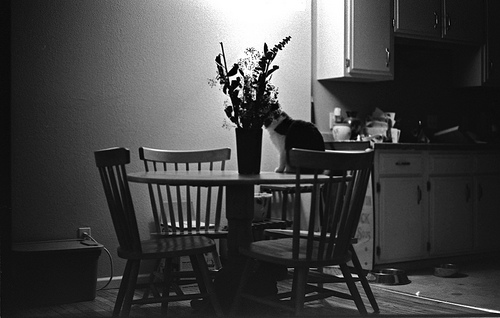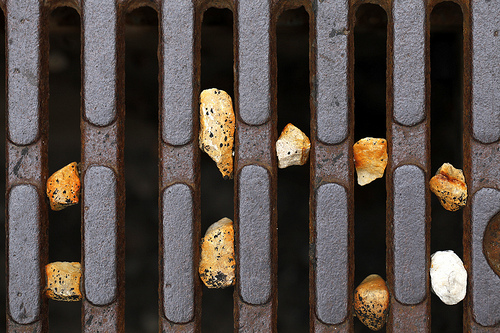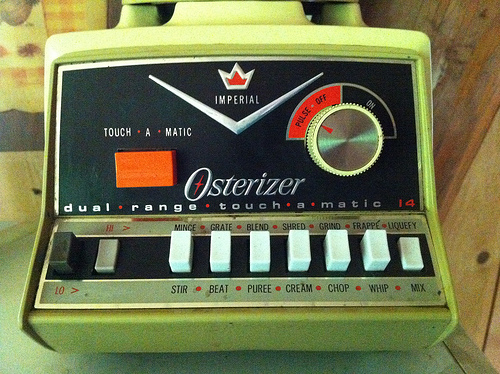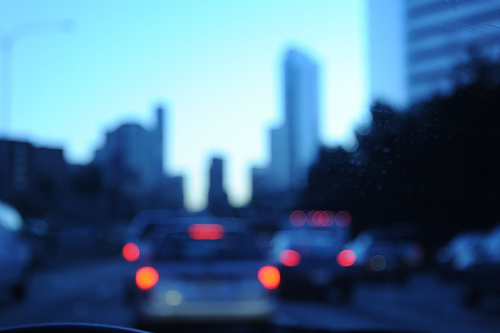
Once my father was diagnosed we started having a lot more family dinners together.
We all knew quality time was a priority, but it never felt like we were trying too hard to make it happen. We didn’t have to talk about it, stressing how important it was to “make this time count” or anything like that. Over those few years, we just all had dinner together on a regular basis, and let other commitments get in the way much less often.
I remember how easy it was to be happy at these dinners. There was nothing particularly different about them than the thousands of other family dinners we’d had up till then, except that we were probably all less preoccupied, and when we were done eating nobody was in a rush to leave. Most of the time afterwards we would stay at the table for a while, telling stories and laughing about stuff.
It wasn’t sentimental or heavy at all, it was just nice. I really wasn’t thinking about the larger context of life and death or carpe diem or anything like that. My attention was just on the food and the people in the room.
These are the simplest and greatest luxuries. That table in that old suburban house often felt like the best place in the world to be. You’d think that it would be more common to experience this unfettered “niceness”, at least when you live a first-world life in which it’s never hard to find good food or good people to eat with.
We’ve each had the experience many times, of a moment that’s truly, perfectly fine, but this state is the exception, not the rule, in most people’s lives. Much of the rest of the time it seems like something needs to be fixed or addressed before the moment can be enjoyed for what it is.
When I was reading about personal finance a couple of years ago, I remember being confounded by another blogger’s brilliant question: “If you feel like your income is too low, how much more do you think you’d need before you don’t feel like that any more?” Often it seems like just a bit more (another 10k a year?) really would let you finally be happy with your finances. But then you remember that you probably thought that when you made half as much as you do now.
Something in us, some self-defeating thinking pattern, is constantly putting contentedness just out of reach, just behind a particular to-do being done or a particular problem being resolved. Yet all of the times you’ve felt contentedness, your life certainly contained unresolved problems and unfulfilled desires.
So if you’re not happy right now, what specifically is it that’s missing? What’s the thing (or things) that, if added to your current lot in life, would allow you to feel that “This really is nice and I’m very lucky to be here” feeling?
Usually the question, “What more could you need?” usually only comes up when you’re sitting by a pool with a friend and a margarita. And it’s meant to be a rhetorical question you’re not supposed to try to answer. But it’s a telling question to ask of yourself when you aren’t happy with the present. If this particular moment isn’t enough, then what is actually missing? Could you write it down?
Most of the time it seems like there really is some identifiable condition that stands between you and your being happy right now, as if your unhappiness has been well-examined and is truly justified. But what is this alleged difference-maker? Would your financial situation have to change in a certain way? Would a particular health issue have to go away? Would a certain person have to apologize to you?
This is an revealing exercise if you actually try it. You may notice how silly it is to insist on some particular change to the moment before you’re prepared to appreciate it. Maybe if you had that thing it wouldn’t change anything. Or maybe you can’t think of what it is at all.
Maybe something really is making it impossible to be grateful right now (perhaps a nail sticking through your foot) but often it’s just our habitual human pettiness making a dealbreaker out of a small preference. Read More




 I'm David, and Raptitude is a blog about getting better at being human -- things we can do to improve our lives today.
I'm David, and Raptitude is a blog about getting better at being human -- things we can do to improve our lives today.
It all pretty the opposite if you're not in the US :) Since 2022 I've changed 3 countries and I'm planning to emigrate to the fourth one. I've had so much novelty and so many things to adapt to. However, time had never run so fast for me as in 2022...